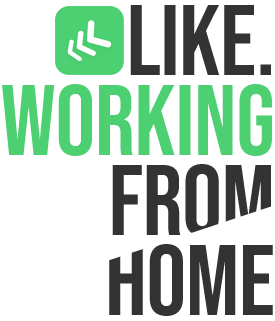What you will do
As a Software Engineer Machine Learning Operations (MLOps), your objective is to design, build and run our machine learning stack in such a way that we can easily scale up our analysis to many thousands of sensors/electric motors. Your key responsibilities are:
- Move newly finished research of the data science team to production
- Improve the stability and the reliability of our current pipeline
You will be working on daily basis with both data scientists and developers. It will be your task to review code from data science in the research repository that has already been approved by data science. This means that we already know that the functionality is useful and executes the correct logic. Now, you will have to think about how to schedule the code and put it into production. Also, you must think about the computational efficiency and robustness, meanign that where possible (in these areas) you make improvements to the existing code.
You will be monitoring the data flow, databases and other systems related to our data science pipeline, where you are again focused on robustness and efficiency. It is considered a big plus if you have (some) knowledge about machine learning, allowing you to understand what determines the accuracy of the data and our models. For us at Semiotic Labs, it is not only important that our algorithms run, but simulatenously process the right data and have a high accuracy - ultimately improving our reliability.
You will be part of the Software Engineering team, taking care of the various software engineering challenges associated with data science and machine learning.
How we work
The development team uses its own simple, practical, and functional methodology, allowing you to fully focus on software engineering without having to switch tasks. You will work based on the principle of freedom and responsibility.
We take pride in combining professionalism, trust, and very few meetings.
The development team
The software engineering team currently consists of 9 experienced developers working on a large architecture covering a wide domain, from signal processing on our edge devices through dashboarding for different user groups. Continuous improvement and daily deployments are at the heart of the high level of quality we deliver.
Curious to learn about what it's like to join our team of developers?
Tech stack
Since we work on cutting-edge technology, we use an up-to-date stack:
- Python to orchestrate our infrastructure
- AWS - we’re using a broad range of AWS services (20+).
- Terraform
- The team prefers to use Linux distributions for their development environments
Requirements
Who should apply?
As a Software Engineer Machine Learning you have a computer science background, at least 3 years of software development experience, and a good understanding of artificial intelligence/ machine learning and infrastructure. Next to this, you have:
a good understanding of modern databases;
experience with designing and running cloud infrastructure, including distributed systems and clusters;
knowledge of configuration management tools;
experience with modern software development practices (e.g. continuous delivery).
Your favorite stack
- Python; to orchestrate our infrastructure
- Sklearn
- Tensorflow / Keras / Pytorch
- AWS (or similar)
It’s a big plus if you have experience with
- Terraform;
- Docker, Kubernetes or ECS;
- PostgreSQL;
- Jenkins;
- Git
What we offer
- A competitive salary
- The chance to work on cutting-edge technology that affects industry worldwide
- A fun and professional company culture based on the principle of freedom and responsibility
- Daily fresh lunches and healthy snacks, as soon as we are back in the office (order your favorite soups or salads on our dedicated Slack lunch channel)
- A growing scale-up led by experienced entrepreneurs and managers with a solid track record
Please note Semiotic Labs does not relocate candidates from outside the EU.
We will only hire people with an EU passport, have eligibility to work in, or are already highly skilled migrants in the Netherlands.

